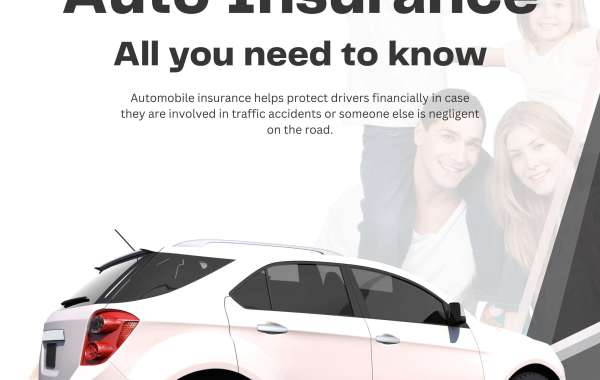Auto Insurance: Protecting Yourself and Your Vehicle
Auto insurance is an essential financial safeguard for vehicle owners, providing protection against various risks on the road. Auto insurance covers car repairs, medical bills and legal issues regardless of the age of your car, saving you money. Guide to auto insurance: coverage types and how to find the best policy for you.
Types of Auto Insurance Coverages in New Jersey
When it comes to auto insurance, there are several types of coverage options available. Understanding these options will help you choose the right policy to suit your needs.
Liability insurance is the most basic type of auto insurance and is typically required by law. It covers the cost of property damage and medical expenses for others if you are found at fault in an accident.
Collision insurance protects your vehicle against damage caused by collisions with other vehicles or objects, regardless of who is at fault.
Comprehensive insurance provides coverage for non-collision-related damages, such as theft, vandalism, natural disasters, and falling objects.
Personal injury protection (PIP) coverage pays for medical expenses and lost wages for you and your passengers in the event of an accident, regardless of fault.
Factors Affecting Auto Insurance Premiums
Several factors influence the cost of your auto insurance premiums. It's important to understand these factors as they can significantly impact the price you pay for coverage. Your age and driving experience play a role in determining your premiums. Younger drivers or those with less experience may face higher rates due to higher perceived risk. The make and model of your vehicle can also affect your insurance premiums. Luxury cars or vehicles with high repair costs may be more expensive to insure. Your driving record is a crucial factor in determining your premiums. If you have a history of accidents or traffic violations, you may face higher rates.Location matters too. Urban areas with higher traffic congestion or areas prone to accidents or theft may have higher insurance rates.
Understanding Auto Insurance Coverage
To make the most informed decisions about your auto insurance coverage, it's essential to understand the key terms and concepts.
Coverage limits refer to the maximum amount your insurance company will pay for a covered claim. It's important to choose coverage limits that adequately protect your assets.
Deductibles are the amount you must pay out of pocket before your insurance coverage kicks in. Choosing a higher deductible can lower your premiums but means you'll have a higher upfront cost in the event of a claim.
Additional coverage options include rental car reimbursement, roadside assistance, and gap insurance, which covers the difference between the actual cash value of your vehicle and the remaining balance on your loan or lease.
Be aware of exclusions and limitations in your policy. Certain situations or types of damage may not be covered, so it's crucial to read your policy thoroughly.
Tips for Finding Affordable Auto Insurance Coverages in New Jersey
Finding affordable auto insurance doesn't have to be a daunting task. Here are some tips to help you secure the best coverage at a reasonable price.
Shop around and compare quotes from multiple insurance providers. Prices can vary significantly, so it's essential to gather quotes from different companies.
Consider different coverage options and choose only what you need. Review your lifestyle, driving habits, and financial situation to determine the appropriate coverage levels for you.
Bundle insurance policies if possible. Many insurance companies offer discounts if you bundle your auto insurance with other policies like homeowners or renters insurance.
Maintain a good driving record to qualify for lower rates. Avoid accidents and traffic violations to demonstrate your responsible driving behavior.
Making a Claim
In the unfortunate event of an accident or other covered incidents, you may need to file an insurance claim. Here are the steps to follow when making a claim:
Notify your insurance company as soon as possible after the incident occurs. Provide them with all relevant information, including the date, time, and location of the incident.
Gather the necessary documents and information. This may include a police report, photos of the damage, and contact information for any other parties involved.
Cooperate with the insurance adjuster assigned to your claim. They will guide you through the claims process and assess the damages.









